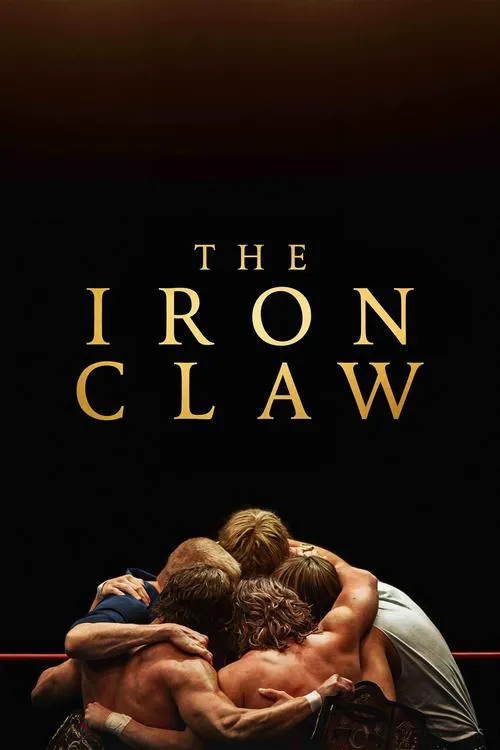The Iron Claw

Plot
The Iron Claw, directed by Sean Durkin, delves into the captivating life story of the Von Erich brothers, Kevin, Kerry, Mike, David, Chris, and Ross, who rose to fame in the cutthroat world of professional wrestling during the 1980s. Born into a family of athleticism, the brothers were trained and mentored by their father, Jack Von Erich, a World Class Champion himself, who prioritized excellence at any cost. As the narrative unfolds, it is evident that Jack's zealous and often suffocating coaching style created an unbreakable bond among the brothers, fostering a deep sense of loyalty and unity that would become both a strength and a weakness in their professional lives. As they grew older, the Von Erich brothers became increasingly dependent on their father's approval and validation, leading to a codependent relationship marked by tension and drama. Professional wrestling, particularly in the eighties, was a spectacle unlike any other, with athleticism, theatrics, and family feuds all coming together to captivate audiences worldwide. The Von Erich brothers' rise to stardom was meteoric, as talented siblings Kevin and Kerry found massive success with their charismatic performances and daredevil feats. Their fame put immense pressure on their other siblings, who struggled to cope with the challenges of living up to the family's reputation. The wrestling ethos, while titillating for fans, exacted a terrible toll on the Von Erich family. The intense training regimens, coupled with grueling travel schedules and interpersonal conflicts, pushed the brothers to the point of mental and physical exhaustion. Jack's relentless pursuit of World Championship titles for his offspring often led him to dismiss and disregard the health and well-being of his sons, exacerbating underlying issues of insecurity, emotional fragility, and addiction. The delicate balance between artistic expression and bodily preservation weighed heavily on the brothers, as they strove to justify their dad's fervent passion for wrestling. Each brother's struggle with his own fears, doubts, and personal demons made their struggles heartbreaking and all-consuming. The intricate web of psychological complexities within the family was palpable throughout the narrative, casting foreboding shadows over the triumphs and euphoric victories they would eventually enjoy in the wrestling ring. The most striking and poignant aspects of The Iron Claw, however, are those that depict the brothers' ill-fated attempt to transcend their own lives through the mythology of professional wrestling. The script gives weight to Chris and David's diverging paths, as they pursue a world of storytelling, far removed from the violent, no holds barred brutality that obsessed their siblings. David, with his introspective character development and fragile sense of masculinity, makes an especially poignant impression, demonstrating a certain affinity with existential crises often experienced by audiences navigating their own personal mythologies. His isolated, conflicted thoughts in isolated motel rooms linger long after the narrative has concluded. This aspect of the play, juxtaposing Chris's dreams of stardom to David's isolation within a mythological ring speaks to a deep psychology as a narrative trope - "how does one transcend one's own life?" What kind of immortality can one find by building an entire world around death, only to somehow beat the odds?
Reviews
Lucia
The Iron Claw: How toxic masculinity hurts men too. Patriarchy is, in a way, a curse, and it has nothing to do with changing your last name.
Adrienne
The glorification of hyper-masculine sports under a patriarchal gaze feels incredibly dull-witted.
Mason
The protagonist keeps mentioning that his family is cursed, but this curse is actually pinpointed right from the beginning of the film through the protagonist's words: "Father used wrestling to protect our family, and Mother used religion to protect our family." An extremist father and a silent mother stage a tragic story of a family relentlessly destroying its members. The film uses a cold approach to present all the tragedies of this family, which actually brings a greater impact. Zac Efron, in his ugliest look, delivers his most convincing performance yet.
Recommendations




